1127 Connecticut Avenue, NW
Washington, DC 20036

Textualism and the Role of Judges
November 14 — 16, 2013The Federalist Society's 2013 National Lawyers Convention was held on Thursday, November 14 through Saturday, November 16 at the Mayflower Hotel in Washington, D.C. The topic of this year's convention was: Textualism and the Role of Judges.
Back to top2013 National Lawyers Convention
| Topics: | Constitution • Federal Courts • Federalist Society • Jurisprudence • Philosophy • State Courts • Supreme Court |
|---|
Senator Mike Lee of Utah opened the Federalist Society's 2013 National Lawyers Convention with an address to attendees on Thursday, November 14, at the Mayflower Hotel in Washington, DC. Senator Lee was introduced by Mr. Leonard A. Leo, Executive Vice President of the Federalist Society.
2013 National Lawyers Convention
| Topics: | Federal Courts • Founding Era & History • Jurisprudence • Philosophy • Supreme Court |
|---|
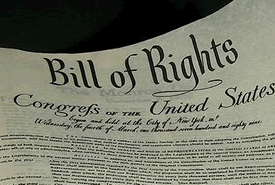 The new textualism has had a big impact on interpretation of the Bill of Rights. Freedom of speech is vigorously protected on the current Supreme Court but in two recent cases over the lone dissent of Justice Alito. This panel will examine the Justices' view on free speech. The Justices have also diverged recently in some striking Fourth Amendment cases. Justices Scalia and/or Thomas have construed the Fourth Amendment broadly, and Chief Justice Roberts and Justices Kennedy and Alito have disagreed. This is also an area where the more liberal Justices disagree in interesting ways. This panel will try to shed light on why the Justices disagree. Bill of Rights literalism will also be considered in terms of its effect on the Takings and Confrontation Clauses, as well as the doctrine of substantive due process.
The new textualism has had a big impact on interpretation of the Bill of Rights. Freedom of speech is vigorously protected on the current Supreme Court but in two recent cases over the lone dissent of Justice Alito. This panel will examine the Justices' view on free speech. The Justices have also diverged recently in some striking Fourth Amendment cases. Justices Scalia and/or Thomas have construed the Fourth Amendment broadly, and Chief Justice Roberts and Justices Kennedy and Alito have disagreed. This is also an area where the more liberal Justices disagree in interesting ways. This panel will try to shed light on why the Justices disagree. Bill of Rights literalism will also be considered in terms of its effect on the Takings and Confrontation Clauses, as well as the doctrine of substantive due process.
The Federalist Society's Practice Groups presented this showcase panel on "Textualism and the Bill of Rights" on Thursday, November 14, during the 2013 National Lawyers Convention.
2013 National Lawyers Convention
| Topics: | Constitution • Federal Courts • Founding Era & History • Supreme Court |
|---|
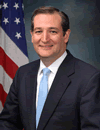 Senator Ted Cruz of Texas addressed attendees of the Federalist Society's 2013 National Lawyers Convention on Thursday, November 14, at the Mayflower Hotel in Washington, DC. Senator Cruz was introduced by Mr. Leonard A. Leo, Executive Vice President of the Federalist Society.
Senator Ted Cruz of Texas addressed attendees of the Federalist Society's 2013 National Lawyers Convention on Thursday, November 14, at the Mayflower Hotel in Washington, DC. Senator Cruz was introduced by Mr. Leonard A. Leo, Executive Vice President of the Federalist Society.
2013 National Lawyers Convention
| Topics: | Corporations, Securities & Antitrust |
|---|
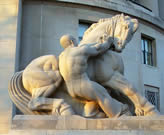 Is the antitrust enforcement authority of the Federal Trade Commission, proceeding under the FTC Act, broader than that of other litigants – whether private plaintiffs or the Department of Justice – proceeding under the Sherman Act? Section 5 of the FTC Act prohibits “unfair methods of competition in or affecting commerce” – language which some have interpreted as equivalent in scope with parallel provisions of the Sherman Act. As recent Supreme Court decisions have appeared to narrow the scope of the Sherman Act, however, the FTC has moved in the opposite direction. In addition to the Valassis and U-Haul “invitation to collude” cases (a cause of action not recognized under the Sherman Act), the FTC has pursued so-called “Sherman Act plus” antitrust actions against N-Data and Intel. Is this seeming divergence between FTC Act and Sherman Act enforcement authority legally defensible? What are its broader policy implications?
Is the antitrust enforcement authority of the Federal Trade Commission, proceeding under the FTC Act, broader than that of other litigants – whether private plaintiffs or the Department of Justice – proceeding under the Sherman Act? Section 5 of the FTC Act prohibits “unfair methods of competition in or affecting commerce” – language which some have interpreted as equivalent in scope with parallel provisions of the Sherman Act. As recent Supreme Court decisions have appeared to narrow the scope of the Sherman Act, however, the FTC has moved in the opposite direction. In addition to the Valassis and U-Haul “invitation to collude” cases (a cause of action not recognized under the Sherman Act), the FTC has pursued so-called “Sherman Act plus” antitrust actions against N-Data and Intel. Is this seeming divergence between FTC Act and Sherman Act enforcement authority legally defensible? What are its broader policy implications?
The Corporations, Securities & Antitrust Practice Group hosted this panel on "'New' Antitrust Enforcement Authority under the FTC Act" on Thursday, November 14, during the 2013 National Lawyers Convention.
2013 National Lawyers Convention
| Topics: | First Amendment • Healthcare • Philosophy • Politics • Religious Liberty • Religious Liberties |
|---|
 In a variety of contexts, from the HHS preventive services mandate to same-sex marriage, differing moral visions are in increasing conflict in the public square. How will this conflict affect the American understanding of religious liberty?
In a variety of contexts, from the HHS preventive services mandate to same-sex marriage, differing moral visions are in increasing conflict in the public square. How will this conflict affect the American understanding of religious liberty?
The Religious Liberties Practice Group hosted this panel on "Religious Liberty & Conflicting Moral Visions" on Thursday, November 14, during the 2013 National Lawyers Convention.
2013 National Lawyers Convention
| Topics: | Labor & Employment Law • Separation of Powers • Supreme Court • Federalism & Separation of Powers |
|---|
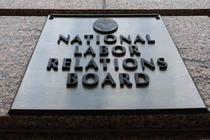 On January 4, 2012, President Barack Obama announced “recess appointments” of three members of the National Labor Relations Board and of Richard Cordray as Director of the Consumer Financial Protection Bureau. These appointments are controversial because the United States Senate was by its own rules not then in recess, but was conducting pro forma sessions every three days. Several appeals from NLRB decisions by panels that included recess appointees were filed, challenging their recess appointments as unconstitutional, and the Cordray appointment has been challenged in litigation over the Dodd-Frank Act, which established the CFPB. On January 25, 2013, in Noel Canning v. NLRB, the D.C. Circuit held that the NLRB recess appointments are constitutionally invalid because they were not made, and did not fill vacancies that occurred, during an intersession recess of the Senate. On May 16, 2013, in NLRB v. New Vista Nursing, the Third Circuit held that an earlier recess appointment to the NLRB was constitutionally void because it was made during an intra-session rather than intersession recess. These decisions are contrary to a 2004 Eleventh Circuit decision and put in doubt hundreds of recess appointments made during the last five presidential administrations. Consequently, on June 24, 2013, the U.S. Supreme Court granted certiorari in Noel Canning. The panelists will discuss the legal and practical arguments for and against affirming the D.C. Circuit’s judgment.
On January 4, 2012, President Barack Obama announced “recess appointments” of three members of the National Labor Relations Board and of Richard Cordray as Director of the Consumer Financial Protection Bureau. These appointments are controversial because the United States Senate was by its own rules not then in recess, but was conducting pro forma sessions every three days. Several appeals from NLRB decisions by panels that included recess appointees were filed, challenging their recess appointments as unconstitutional, and the Cordray appointment has been challenged in litigation over the Dodd-Frank Act, which established the CFPB. On January 25, 2013, in Noel Canning v. NLRB, the D.C. Circuit held that the NLRB recess appointments are constitutionally invalid because they were not made, and did not fill vacancies that occurred, during an intersession recess of the Senate. On May 16, 2013, in NLRB v. New Vista Nursing, the Third Circuit held that an earlier recess appointment to the NLRB was constitutionally void because it was made during an intra-session rather than intersession recess. These decisions are contrary to a 2004 Eleventh Circuit decision and put in doubt hundreds of recess appointments made during the last five presidential administrations. Consequently, on June 24, 2013, the U.S. Supreme Court granted certiorari in Noel Canning. The panelists will discuss the legal and practical arguments for and against affirming the D.C. Circuit’s judgment.
The Labor & Employment Law Practice Group hosted this panel on "Recess Appointments: Implications of Noel Canning" on Thursday, November 14, during the 2013 National Lawyers Convention.
2013 National Lawyers Convention
| Topics: | Intellectual Property • Law & Economics |
|---|
 Are intellectual property rights compatible with free, competitive markets? This question has long been a topic of debate. Some characterize intellectual property rights as government-granted monopolies that call for close scrutiny by competition authorities. Others respond that intellectual property rights don't grant market power and don't deserve special scrutiny. Rather, they are property rights that benefit consumers by encouraging investment in research and innovation. Recently, these questions have become more urgent, as the White House, the FTC, and others have called for increased scrutiny of the affect of intellectual property rights on competition. This panel will consider the relationships among intellectual property rights, competition, innovation, and consumer welfare.
Are intellectual property rights compatible with free, competitive markets? This question has long been a topic of debate. Some characterize intellectual property rights as government-granted monopolies that call for close scrutiny by competition authorities. Others respond that intellectual property rights don't grant market power and don't deserve special scrutiny. Rather, they are property rights that benefit consumers by encouraging investment in research and innovation. Recently, these questions have become more urgent, as the White House, the FTC, and others have called for increased scrutiny of the affect of intellectual property rights on competition. This panel will consider the relationships among intellectual property rights, competition, innovation, and consumer welfare.
The Intellectual Property Practice Group hosted this panel on "Intellectual Property, Free Markets and Competition Policy" on Thursday, November 14, during the 2013 National Lawyers Convention.
2013 National Lawyers Convention
| Topics: | Administrative Law & Regulation • First Amendment • Separation of Powers • Telecommunications & Electronic Media • Federalism & Separation of Powers • Free Speech & Election Law |
|---|
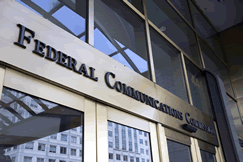 Administrative agencies have long threatened First Amendment freedoms, and have been called to task for their actions by the courts and by Congress. This panel will examine the interaction between federal regulators and speakers, focusing on an agency with a particular free speech regulation role: the Federal Communications Commission. From indecency enforcement to the Fairness Doctrine, media ownership to the recent Tennis Channel decision, the FCC has a long history of creating tension with the First Amendment. During our session, a panel of experts will discuss the legal and policy implications of the Commission’s recent (and historical) interactions with the First Amendment, and what these actions imply for the future of free speech in the shadow of the administrative state.
Administrative agencies have long threatened First Amendment freedoms, and have been called to task for their actions by the courts and by Congress. This panel will examine the interaction between federal regulators and speakers, focusing on an agency with a particular free speech regulation role: the Federal Communications Commission. From indecency enforcement to the Fairness Doctrine, media ownership to the recent Tennis Channel decision, the FCC has a long history of creating tension with the First Amendment. During our session, a panel of experts will discuss the legal and policy implications of the Commission’s recent (and historical) interactions with the First Amendment, and what these actions imply for the future of free speech in the shadow of the administrative state.
The Telecommunications & Electronic Media Practice Group hosted this panel on "The FCC vs. the First Amendment" on Thursday, November 14, during the 2013 National Lawyers Convention.
2013 National Lawyers Convention
| Topics: | Constitution • Federalism • State Governments • Federalism & Separation of Powers |
|---|
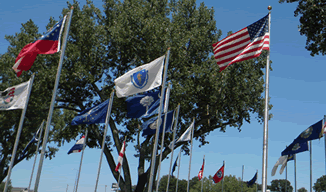 The American system of federalism is at the heart of many disagreements over important constitutional and public policy issues. How should we balance state and federal rights? Can we make better progress by allowing states to pursue their own policies independently or should the federal government take a more active role? Should we strive for a system in which states compete with each other and with the federal government, or should we instead work to strengthen cooperation among the states and between federal and state government?
The American system of federalism is at the heart of many disagreements over important constitutional and public policy issues. How should we balance state and federal rights? Can we make better progress by allowing states to pursue their own policies independently or should the federal government take a more active role? Should we strive for a system in which states compete with each other and with the federal government, or should we instead work to strengthen cooperation among the states and between federal and state government?
The Federalism & Separation of Powers Practice Group hosted this panel on "Competitive versus Cooperative Federalism" on Thursday, November 14, during the 2013 National Lawyers Convention.
2013 National Lawyers Convention
| Topics: | Federalism • Financial Services • Litigation • State Governments |
|---|
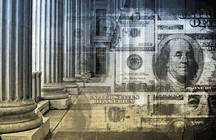 Private litigants and state governments are turning to new sources of funding for lawsuits. Private litigants are now selling shares of their lawsuits to investment and hedge funds, a practice more popular in countries with more limited access to contingency fees like England and Australia. State governments are now outsourcing their legal work to law firms that work on a contingency fee and may themselves turn to investment and hedge funds. Are these developments good or bad? Are they legal? How, if at all, should they be regulated?
Private litigants and state governments are turning to new sources of funding for lawsuits. Private litigants are now selling shares of their lawsuits to investment and hedge funds, a practice more popular in countries with more limited access to contingency fees like England and Australia. State governments are now outsourcing their legal work to law firms that work on a contingency fee and may themselves turn to investment and hedge funds. Are these developments good or bad? Are they legal? How, if at all, should they be regulated?
The Litigation Practice Group hosted this panel on "The New Age of Litigation Financing" on Thursday, November 14, during the 2013 National Lawyers Convention.
2013 National Lawyers Convention Annual Dinner
| Topics: | Constitution • Jurisprudence • Philosophy • Supreme Court |
|---|
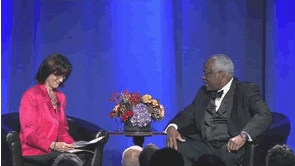 On November 14, 2013, during the Federalist Society's 2013 National Lawyers Convention Annual Dinner, Judge Diane S. Sykes of the United States Court of Appeals for the Seventh Circuit interviewed Supreme Court Justice Clarence Thomas. The Honorable David M. McIntosh of Mayer Brown and Vice Chairman of the Federalist Society introduced Judge Sykes.
On November 14, 2013, during the Federalist Society's 2013 National Lawyers Convention Annual Dinner, Judge Diane S. Sykes of the United States Court of Appeals for the Seventh Circuit interviewed Supreme Court Justice Clarence Thomas. The Honorable David M. McIntosh of Mayer Brown and Vice Chairman of the Federalist Society introduced Judge Sykes.
2013 National Lawyers Convention
| Topics: | Constitution • Founding Era & History • Jurisprudence • Philosophy • Supreme Court |
|---|
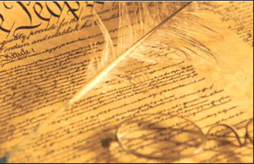 This panel will examine the growth of interest in recent years in original public meaning as a source of constitutional law. Panelists will debate the merits and demerits of originalism as compared to living constitutionalism. Questions addressed will include whether originalism is consistent with or in opposition to living constitutionalism and whether evidence of original intent is ever relevant to constitutional law. Panelists will also discuss the normative arguments for and against reliance on original meaning in constitutional interpretation. Another question to be considered is whether the interpretation and construction of legal rules are separate or identical judicial acts.
This panel will examine the growth of interest in recent years in original public meaning as a source of constitutional law. Panelists will debate the merits and demerits of originalism as compared to living constitutionalism. Questions addressed will include whether originalism is consistent with or in opposition to living constitutionalism and whether evidence of original intent is ever relevant to constitutional law. Panelists will also discuss the normative arguments for and against reliance on original meaning in constitutional interpretation. Another question to be considered is whether the interpretation and construction of legal rules are separate or identical judicial acts.
The Federalist Society's Practice Groups presented this showcase panel on "Textualism and Constitutional Interpretation" on Friday, November 15, during the 2013 National Lawyers Convention.
2013 National Lawyers Convention
| Topics: | Constitution • Federalism • State Governments • Federalism & Separation of Powers |
|---|
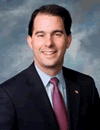 Governor Scott Walker of Wisconsin addressed attendees of the Federalist Society's 2013 National Lawyers Convention on Friday, November 15, at the Mayflower Hotel in Washington, DC. Governor Walker was introduced by Mr. Dean A. Reuter, Vice President & Director of Practice Groups for the Federalist Society.
Governor Scott Walker of Wisconsin addressed attendees of the Federalist Society's 2013 National Lawyers Convention on Friday, November 15, at the Mayflower Hotel in Washington, DC. Governor Walker was introduced by Mr. Dean A. Reuter, Vice President & Director of Practice Groups for the Federalist Society.
2013 National Lawyers Convention
| Topics: | Financial Services • Law & Economics • Financial Services & E-Commerce |
|---|

In the aftermath of the recent economic crisis a remarkable political consensus developed that no financial firm in America should be immune from failure. Operationally, that consensus begins with hostility to providing government bailouts. The Dodd-Frank Act requires mandatory “living wills” for systemically important financial companies in addition to limiting the power of government officials to provide bailouts while granting the FDIC “orderly liquidation authority.” Other proposals have been offered to “bust up” the biggest banks or to require enhanced capital for the largest banks, which most likely would force them to downsize.
Which of these steps will be effective? Which might have unpleasant side effects or even be counterproductive? Will government officials really stand back when confronted with the failure of a systemically important institution and risk “bad headlines,” or worse? Does TBTF put smaller financial institutions at a competitive disadvantage? What about the lack of due process in Dodd-Frank’s orderly liquidation authority? Is there a bankruptcy procedure that would be fairer and better suited to the liquidation of a large financial firm? How would the ability of the U.S. to be competitive in international finance be affected by some of these proposals? Our panel will address these and other important legal and policy issues that remain unanswered as the economy struggles to return to normal.
The Financial Services & E-Commerce Practice Group hosted this panel on "Too Big To Fail - What Now?" on Friday, November 15, during the 2013 National Lawyers Convention.
2013 National Lawyers Convention
| Topics: | Criminal Law & Procedure • First Amendment • Free Speech & Election Law |
|---|
 What are the First Amendment rights of press in the context of criminal investigations, and when national security is at issue? In the modern, digital age, is there even agreement on who qualifies as press? Should institutional or traditional press have greater rights over non-traditional media, including bloggers? What are the rights of media to publish material leaked from the government? Does the answer change if the media solicited the material or otherwise participated in the leak? What are the policy and legal considerations when it comes to a national media shield law? These and other questions will be addressed by our panel of experts.
What are the First Amendment rights of press in the context of criminal investigations, and when national security is at issue? In the modern, digital age, is there even agreement on who qualifies as press? Should institutional or traditional press have greater rights over non-traditional media, including bloggers? What are the rights of media to publish material leaked from the government? Does the answer change if the media solicited the material or otherwise participated in the leak? What are the policy and legal considerations when it comes to a national media shield law? These and other questions will be addressed by our panel of experts.
The Criminal Law & Procedure Practice Group hosted this panel on "Criminal Law Enforcement versus the Free Press" on Friday, November 15, during the 2013 National Lawyers Convention.
2013 National Lawyers Convention
| Topics: | Civil Rights • Contracts • Education Policy • Financial Services • Labor & Employment Law |
|---|
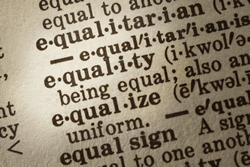 A number of commentators have noted an expansion of the use of disparate impact analysis in the federal government to areas other than employment. Examples of increased application are often cited in education, government contracting, and auto financing, to name a few. Our panel of experts will discuss whether or not there has been such an increase, and, if so, what the ramifications may be.
A number of commentators have noted an expansion of the use of disparate impact analysis in the federal government to areas other than employment. Examples of increased application are often cited in education, government contracting, and auto financing, to name a few. Our panel of experts will discuss whether or not there has been such an increase, and, if so, what the ramifications may be.
The Civil Rights Practice Group hosted this panel on "Use of Disparate Impact Analysis" on Friday, November 15, during the 2013 National Lawyers Convention.
2013 National Lawyers Convention
| Topics: | Security & Privacy • International & National Security Law |
|---|
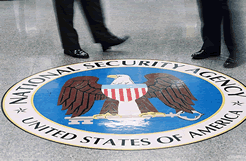 On Friday, November 15, 2013, the Federalist Society hosted a discussion between Former United States Attorney General Michael Mukasey and Professor Jeremy A. Rabkin of George Mason University School of Law on "NSA Data Collection" at the 2013 National Lawyers Convention. Former Acting United States Attorney General George J. Terwilliger moderated.
On Friday, November 15, 2013, the Federalist Society hosted a discussion between Former United States Attorney General Michael Mukasey and Professor Jeremy A. Rabkin of George Mason University School of Law on "NSA Data Collection" at the 2013 National Lawyers Convention. Former Acting United States Attorney General George J. Terwilliger moderated.
2013 National Lawyers Convention
| Topics: | International Law & Trade • Security & Privacy • International & National Security Law |
|---|

Cyber attacks were the first identified global threat in the U.S. Intelligence Community's 2013 Worldwide Threat Assessment. Government officials have warned of a "Cyber Pearl Harbor". Yet there is little consensus on the best measures to prevent and mitigate cyber attacks. This panel will address key questions such as information sharing and related privacy concerns, the effectiveness and burdens of regulation of critical infrastructure, the possibility of preemptive active defense, and the effects of the exposure of the NSA programs on cybersecurity.
The International & National Security Law Practice Group hosted this panel on "Cybersecurity -- The Policy and Politics of a Leading National Security Threat" on Friday, November 15, during the 2013 National Lawyers Convention.Mr. Steven G. Bradbury, Partner, Dechert LLP and former head, Office of Legal Counsel, United States Department of Justice
2013 National Lawyers Convention
| Topics: | Administrative Law & Regulation • First Amendment • Religious Liberty • Free Speech & Election Law • Religious Liberties |
|---|
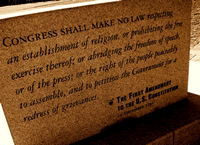
The government (federal, state, and local) offers a wide range of benefits to groups. Some benefits are monetary subsidies. Some consist of access to government property such as university classrooms and bulletin boards. Some of the most important benefits are income and property tax exemptions, which the Supreme Court has said are tantamount to subsidies. What sorts of speech-restrictive conditions may the government impose on such subsidies? May the government insist that benefited groups refrain from using the benefits for religious commentary, for electioneering and lobbying, for speaking about abortion, or for creating “indecent” or “disrespectful” art? May the government insist that benefited groups not discriminate in their choice of leaders or members? May the government insist that benefited groups affirmatively expressive certain views (such as opposition to prostitution)?
This issue has divided the Court in a wide range of cases, such as Rust v. Sullivan, Rosenberger v. University of Virginia, NEA v. Finley, Christian Legal Society v. Martinez, and, most recently, USAID v. Alliance for Open Society International. It has also come up in the news, with the IRS’s investigation of Tea Party groups that apply for tax-exempt status – such investigations are closely tied to the statutory restrictions on electioneering and lobbying by tax-exempt groups. And the issue has in recent years sometimes inverted the usual partisan divides: in Rosenberger and Christian Legal Society, for instance, it has been the conservatives who have argued for free speech restriction even when government-provided benefits are involved, and the liberals who have argued that speakers who accept government benefits must also accept the restrictions imposed on those benefits.
The Free Speech & Election Law Practice Group hosted this panel on "The First Amendment and Government Benefits" on Friday, November 15, during the 2013 National Lawyers Convention.
2013 National Lawyers Convention
| Topics: | Constitution • Federalist Society • Philosophy • Supreme Court |
|---|
On September 11, 2001, at the age of 45 and at the height of her professional and personal life, Barbara K. Olson was murdered in the terrorist attacks against the United States as a passenger on the hijacked American Airlines flight that was flown into the Pentagon. The Federalist Society established this annual lecture in Barbara's memory because of her enormous contributions as an active member, supporter, and volunteer leader. Solicitor General Theodore B. Olson delivered the first lecture in November 2001. The lecture series continued in following years with other notable individuals. In 2013, the Honorable Neil M. Gorsuch of the United States Court of Appeals for the Tenth Circuit delivered the lecture. He was introduced by Mr. Eugene B. Meyer, President of the Federalist Society.
For information about Barbara Olson and this lecture series, click HERE.
For a list of past lecturers, click HERE.
2013 National Lawyers Convention
| Topics: | Administrative Law & Regulation • Constitution • Jurisprudence • Philosophy • Separation of Powers • Supreme Court |
|---|
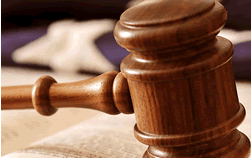 Chevron U.S.A. Inc. v. Natural Resources Defense Council, Inc., 467 U.S. 837 (1984) is a landmark case that has changed the face of modern administrative law. This panel will address the rightness and limitations of Chevron deference, especially in the context of agency decisions on the scope of the agencies’ jurisdictional mandates. Should the federal courts defer or should they not defer in this context? Justices Scalia and Thomas recently differed on this issue from Chief Justice Roberts and Justices Kennedy and Alito. Who is right on this issue and why? Does the answer depend, in any measure, on the growth of the administrative state? Are there larger issues of jurisprudential philosophy at stake?
Chevron U.S.A. Inc. v. Natural Resources Defense Council, Inc., 467 U.S. 837 (1984) is a landmark case that has changed the face of modern administrative law. This panel will address the rightness and limitations of Chevron deference, especially in the context of agency decisions on the scope of the agencies’ jurisdictional mandates. Should the federal courts defer or should they not defer in this context? Justices Scalia and Thomas recently differed on this issue from Chief Justice Roberts and Justices Kennedy and Alito. Who is right on this issue and why? Does the answer depend, in any measure, on the growth of the administrative state? Are there larger issues of jurisprudential philosophy at stake?
The Federalist Society's Practice Groups presented this showcase panel on "Formalism and Deference in Administrative Law" on Saturday, November 16, during the 2013 National Lawyers Convention.
2013 National Lawyers Convention
| Topics: | Culture • Politics • Professional Responsibility & Legal Education |
|---|
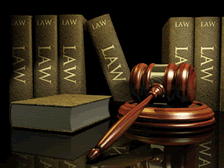
In 1990, the Supreme Court unanimously held that an integrated state bar association, which all lawyers licensed in a state must join, could not use the compulsory dues paid by its members to pursue political or ideological activities unrelated to regulating the legal profession or improving the legal system. Keller v. State Bar of California, 496 U.S. 1 (1990). The Court explained, “[T]he extreme ends of the spectrum are clear: Compulsory dues may not be extended to endorse or advance a gun control or nuclear weapons freeze initiative; at the other end of the spectrum petitioners have no valid constitutional objection to their compulsory dues being spent for activities connected to disciplining members of the Bar or proposing ethical codes for the profession.” Id., at 15-16.
In the nearly 25 years since the Court decided Keller, the entities empowered to promulgate ethical rules binding on the lawyers practicing in a state have imposed a variety of regulations, some of which are more closely and clearly related to the regulation of the legal profession than others. Requirements like continuing legal education and contributions to client security funds are generally seen to fall within the scope of permissible regulation. The imposition of mandatory diversity training in Minnesota and a requirement that law students perform a specified number of hours of pro bono work as a condition to their becoming licensed to practice in New York look different.
Should state regulation of the bar be limited to imposing rules whose purpose is the protection of client interests? Or, can the regulators impose rules designed to make lawyers “better” people in the belief that “better” people will better serve their clients? How far can the organized bar go in “proposing ethical codes for the profession?” To what extent do programs like mandatory diversity training and requiring law students to perform a specified number of pro bono hours serve the interests of clients?
The Professional Responsibility & Legal Education Practice Group hosted this panel on "Regulation of the Legal Profession in the 21st Century: Should Professional Regulation Favor Social Policy over Client Protection?" on Saturday, November 16, during the 2013 National Lawyers Convention.
2013 National Lawyers Convention
| Topics: | Constitution • Environmental & Energy Law • Property Law • State Governments • Supreme Court • Environmental Law & Property Rights |
|---|
 This past year, the Supreme Court decided three important regulatory takings cases, including Arkansas Game & Fish Commission, Koontz, and Horne. At the state level, several states, including Virginia and Mississippi, recently adopted new constitutional amendments limiting the definition of public use and restricting the power of eminent domain. Many, including Supreme Court Justice Antonin Scalia, have urged the Supreme Court to reconsider its Public Use Clause jurisprudence and overrule or limit cases such as Kelo v. City of New London. At both the state and federal level, takings law is very much in flux. This panel will assess where we are on important constitutional takings issues, and where we should be going.
This past year, the Supreme Court decided three important regulatory takings cases, including Arkansas Game & Fish Commission, Koontz, and Horne. At the state level, several states, including Virginia and Mississippi, recently adopted new constitutional amendments limiting the definition of public use and restricting the power of eminent domain. Many, including Supreme Court Justice Antonin Scalia, have urged the Supreme Court to reconsider its Public Use Clause jurisprudence and overrule or limit cases such as Kelo v. City of New London. At both the state and federal level, takings law is very much in flux. This panel will assess where we are on important constitutional takings issues, and where we should be going.
The Environmental Law & Property Rights Practice Group hosted this panel on "New Directions in Takings Law" on Saturday, November 16, during the 2013 National Lawyers Convention.
2013 National Lawyers Convention
| Topics: | Administrative Law & Regulation • Separation of Powers • Federalism & Separation of Powers |
|---|
 Has Congress has over-delegated to agencies and failed to provide meaningful oversight? Should Congress coordinate its oversight responsibility with its appropriations authority? Are the courts, in the wake of the Chevron case, and most recently in City of Arlington, deferring too much to agencies? Are the President and White House able to provide oversight, and does the answer change for cabinet-level departments versus independent agencies?
Has Congress has over-delegated to agencies and failed to provide meaningful oversight? Should Congress coordinate its oversight responsibility with its appropriations authority? Are the courts, in the wake of the Chevron case, and most recently in City of Arlington, deferring too much to agencies? Are the President and White House able to provide oversight, and does the answer change for cabinet-level departments versus independent agencies?
The Administrative Law & Regulation Practice Group hosted this panel on "Executive Branch Gone Wild? 21st Century Checks and Balances" on Saturday, November 16, during the 2013 National Lawyers Convention.
2013 National Lawyers Convention
| Topics: | Constitution • Federal Courts • Separation of Powers • State Courts • Supreme Court • Federalism & Separation of Powers |
|---|
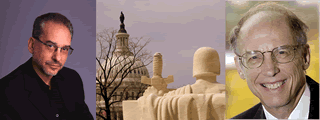 RESOLVED: Courts are too Deferential to the Legislature
RESOLVED: Courts are too Deferential to the Legislature
The Sixth Annual Rosenkranz Debate was held on November 16, 2013, during The Federalist Society's 2013 National Lawyers Convention.
2013 National Lawyers Convention
| Topics: | Constitution • Founding Era & History • Jurisprudence • Philosophy |
|---|
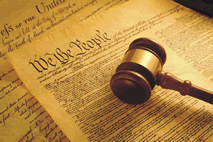 In recent years, textualism has come to replace legislative history as the most important tool available to Supreme Court Justices when interpreting statutory text. This panel will examine the new textualism and will debate its merits. What are the arguments for and against textualism? When, if ever, ought a judge consider legislative history? This panel will also address the question of whether the Justices all share the same approach to statutory interpretation or whether they continue to diverge in predictable ways. What effect does the choice of interpretive techniques have on congressional drafting of legislation in the future?
In recent years, textualism has come to replace legislative history as the most important tool available to Supreme Court Justices when interpreting statutory text. This panel will examine the new textualism and will debate its merits. What are the arguments for and against textualism? When, if ever, ought a judge consider legislative history? This panel will also address the question of whether the Justices all share the same approach to statutory interpretation or whether they continue to diverge in predictable ways. What effect does the choice of interpretive techniques have on congressional drafting of legislation in the future?
The Federalist Society's Practice Groups presented this showcase panel on "Textualism and Statutory Interpretation" on Saturday, November 16, during the 2013 National Lawyers Convention.
2013 National Lawyers Convention
| Topics: | Constitution • Culture • Election Law • Federal Courts • Politics • Supreme Court • Free Speech & Election Law |
|---|
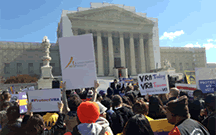 The Federalist Society's Practice Groups presented this panel on "The Electorate and the Courts" on Saturday, November 16, during the 2013 National Lawyers Convention.
The Federalist Society's Practice Groups presented this panel on "The Electorate and the Courts" on Saturday, November 16, during the 2013 National Lawyers Convention.